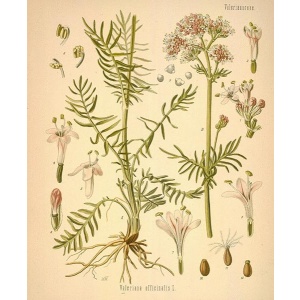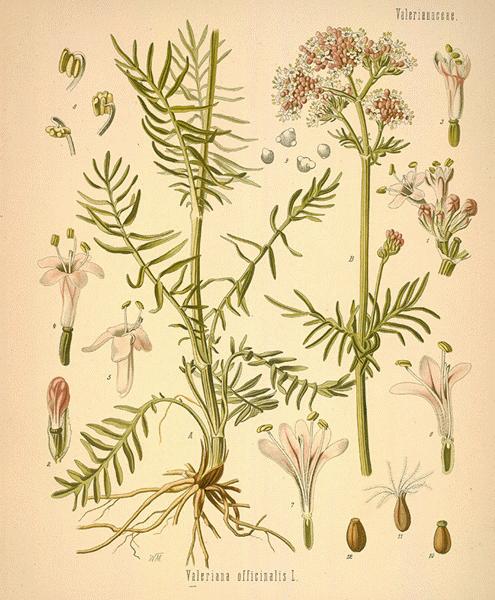 Valerian (Valariana officinalis) has been used historically and continues to be applied in modern herbal medicine for various conditions:
Valerian (Valariana officinalis) has been used historically and continues to be applied in modern herbal medicine for various conditions:
- Nervous System Disorders: Valerian is primarily known for its effects on the nervous system, helping with insomnia, anxiety, stress, and depression-related nervousness. However, caution is advised due to its strong sedative properties, which can exacerbate depression. Studies have shown its effectiveness comparable to diazepam for anxiety and as a sedative in conditions like epilepsy and hysteria.
- Musculoskeletal Pain/Spasm: Valerian’s antispasmodic properties make it beneficial for muscle spasms, menstrual cramps, and nervous system-related spasms. It can relieve neuromuscular pain and tension, useful in conditions such as lumbago, sciatica, and bronchial pain. It also aids in urinary tract tension during kidney stones.
- Digestive Upset: As a digestive tonic, Valerian alleviates nervous digestion, cramping, gas, and colic. Its warming, carminative, and antispasmodic effects help with stress-related digestive issues, promoting gastrointestinal secretions and reducing muscular tension in the gut.
- Stress-Related Heart Conditions: Valerian helps with high blood pressure and heart conditions associated with stress by relaxing vascular tension and promoting blood flow. It acts as a gentle vasodilator, improving peripheral circulation and reducing nervous energy-related heart issues.
Valerian’s warming stimulant effect supports overall circulatory and cardiovascular health, and its historical use includes aiding eyesight by improving cerebral circulation. Despite its benefits, long-term use is generally not recommended due to its potent effects and potential for causing drowsiness and dependence.



Reviews
There are no reviews yet.